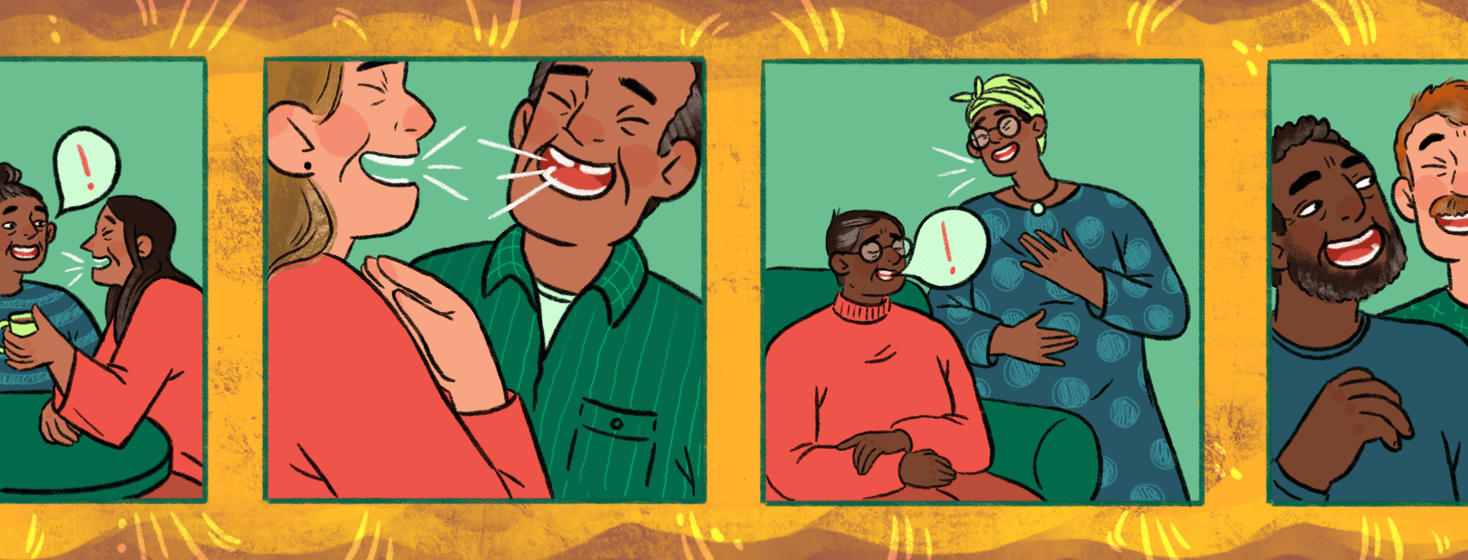Embracing Humor With Alzheimer’s (Even When It’s Tricky)
Humor can be a tricky concept. We all enjoy our own brands of humor, but humor is also very abstract and changes with us as we go through different stages of life. At 31, I already don’t understand what people in their early 20s find funny.
As we age, we find different things humorous based on our likes, dislikes, and life experiences. As we get older, humor, I think, looks different again—especially so for people with Alzheimer's disease. One day, they can be dishing it out with the best of them or say something funny completely intending to, and the next, the jokes just don't land!
Navigating humor with Alzheimer’s
On a recent visit, my mom and I found my grandma sitting very comfortably in a big chair in the hallway, watching the world go by on her bustling wing just a few doors down from her room. After some persuasion, we reminded her to grab her walker as we headed down the hall back to her room.
"Ah! Are these your sisters?" a well-meaning staff member joked to my grandma.
"Yes!" my grandma enthusiastically said, "My sister and my niece, Kerri!"
When the joke doesn't land
The moment passed quickly, but my mom brought it up as we were in the car afterward. This little joke that didn't land wasn't a problem at all, but it did make me think about how Alzheimer's disease unfolds.
"It's always interesting to me how her brain... does things," I said. "I know eventually, one day, she won't remember my name. But even today, she knew my name immediately, even though she called me her niece!"
We know people with Alzheimer's slip back in time. Though inconsistently, the daughter becomes the sister who's been dead for decades but gets brought up in conversations like she was just on the phone, and their parents are (miraculously!) alive and well once again. Embracing humor with Alzheimer’s means understanding these shifts.
With all that said, the combination of a casual joke, especially one often used between people, plus brain-fumbling with social cues and trying to interpret humor... well, it doesn't always go as planned. I find it even more interesting just how those "files" in the brain's filing cabinet get mixed up, as only dementia can do. Yet despite these challenges and obstacles, before I say hardly a word in the hallway, she knows me by name!
Where does humor belong?
I am a deep believer that the right humor heals, humanizes, and belongs in healthcare. When this casual joke didn't take off, I wondered if this was the best strategy by staff when a client has dementia, and jokes don't always land. However, I came to the conclusion that, at this stage in my grandma's life and disease progression, this does not harm.
When she was able to place herself more easily, clarifying places, people, and relationships was more important to keep her happy and oriented. But now? Now I think the important thing is the sensation and warmth around her. We can't say she will always know exactly who we are or know our names, but if she equates us with familiarity, happiness, and love? That is the vital thing.
The energy and warmth of embracing humor with Alzheimer's
There is also, I think, an energy to humor that is important. Even if the jokes don't land, they can still create a positive, welcoming vibe that feels like the warmth of home. The sense of that friendly interaction can still provide benefits! Especially too, as we see in the better days and excellent hours, the laughs that come and the humor that can still rise from the depths of our loved ones despite this disease. Because let me tell you, sometimes my grandma makes a joke, and it absolutely lands!
How do you use humor when navigating life with a person with Alzheimer's disease? Do you find embracing humor with Alzheimer’s to be more helpful for your loved one?

Join the conversation